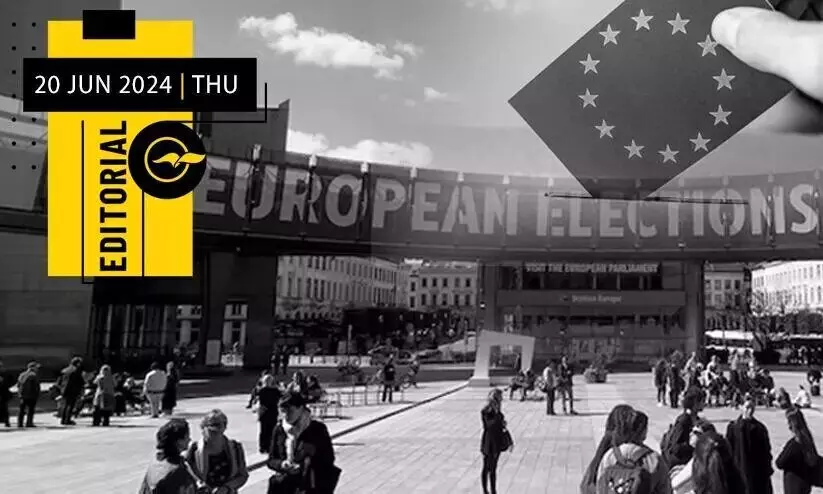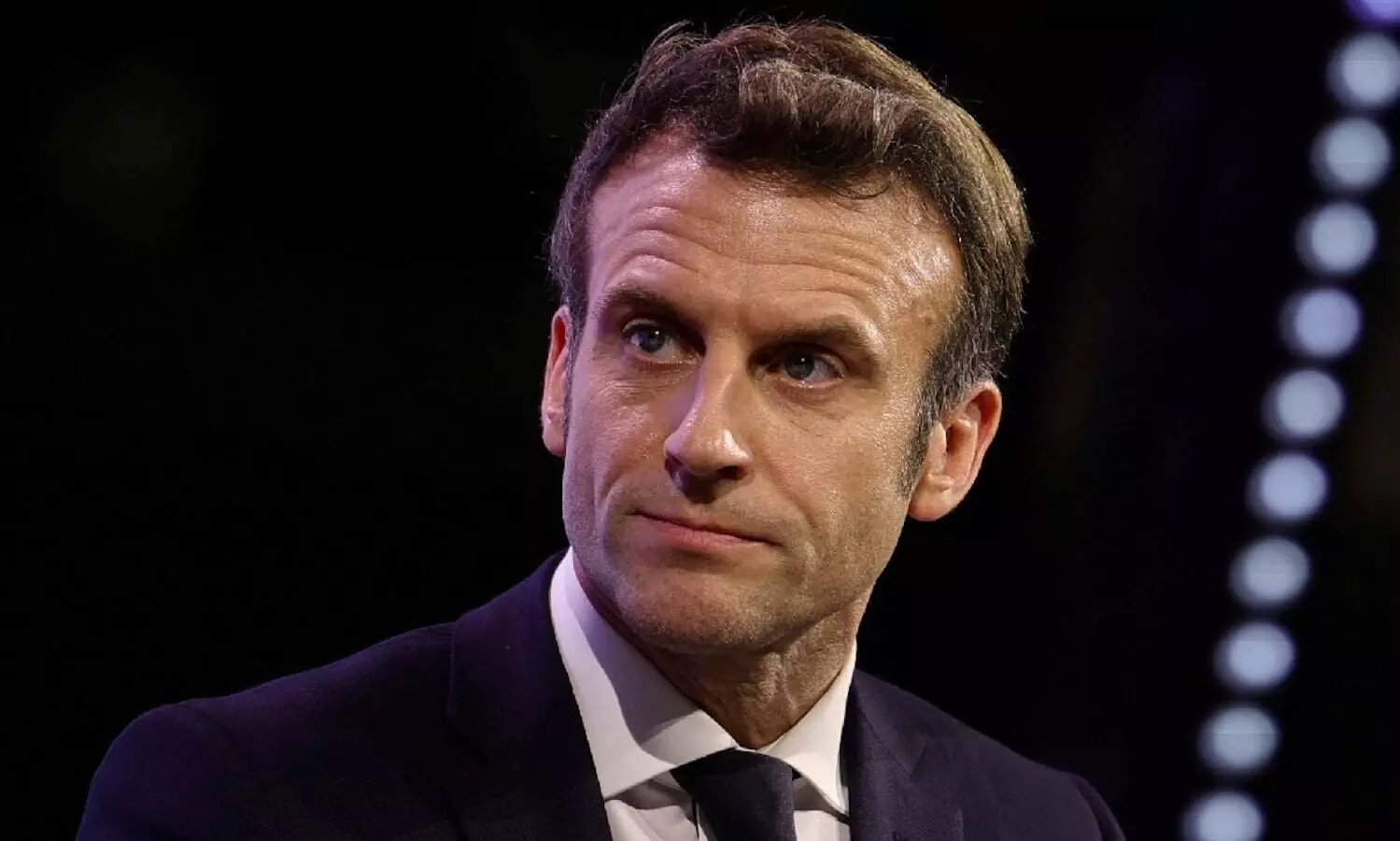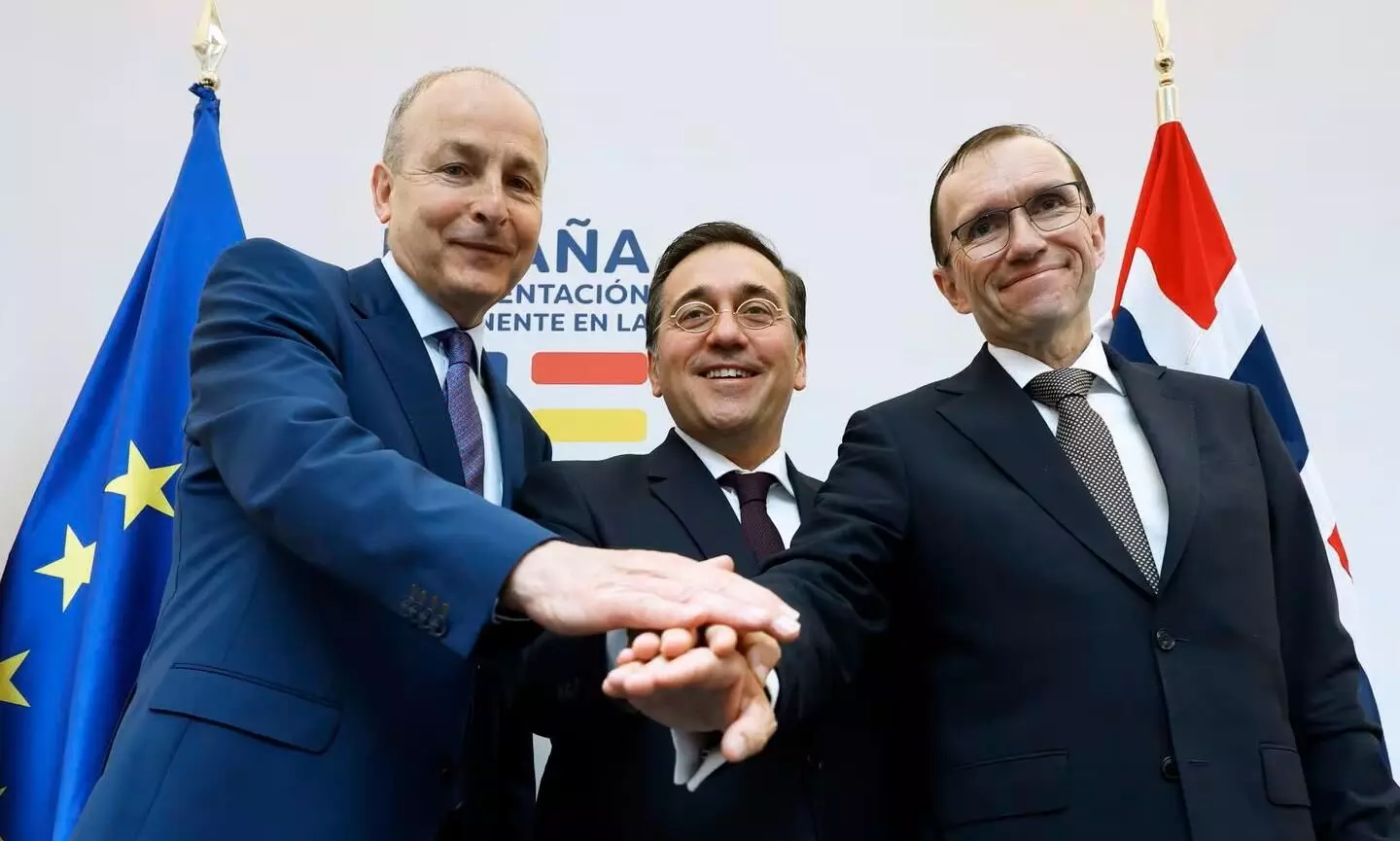
Is Europe leaning to the right?
text_fieldsAs reports indicate, the right-wing and extreme right-wing parties have made a surge in the elections to the European Parliament, the law-making body of the EU, held from the 6th to the 9th of this month. Although the centre-right parties are almost certain to have a numerical majority in parliament, the gains of right-wing parties in key countries such as France, Germany and Italy are seen as a shift in the political tide. Right-wing parties gaining power in Europe will have resonances not mainly in those countries but also in other countries. For instance, it is the citizens of North African countries and countries whose citizens seek asylum that are more concerned about say, the increase in the vote share of France's anti-immigration Marine Le Pen than the European population. In light of France's right-wing party winning nearly 30 per cent of the vote and 30 out of 81 seats, President Macron has suddenly announced mid-term elections to prove his party's majority. The reason for announcing the election three years before his term expires in 2027 is the popular support gained by the ultra-nationalist party led by Le Pen. That support has translates to almost double the number of votes won by Macron's centrist Renaissance Party, which came in second.
Other than France, in Germany, which sends the largest number of members (MEPs), the front led by Chancellor Olaf Scholz managed to secure only 30 per cent of the vote. Although the opposition Alternative for Deutschland party won only 16 per cent, they managed to capture more seats than Schulz's Social Democratic Party alone. In Italy, Prime Minister Giorgia Meloni’s party with neo-fascist roots, the Brothers of Italy, have tightened their grip winning a quarter of the votes. Far-right parties in Austria, Hungary and Spain also made gains. Although the parties compete under the labels of their respective national parties, after the elections, it is customary to form alliances and fronts of like-minded groups at the pan-European level and compete in elections for positions such as president. It is also noteworthy that the Green Movement, which emphasizes climate action in the midst of the right-wing movements, got only 53 seats, down from 71 seats last time.
Established in 1958 with 142 MEPs, the European Parliament is today a body comprising 27 member states and 720 MEPs. Its structural mechanism legislates for EU and adopts the common policies and priorities of the member states on various governance issues and the supervision of bodies such as the European Council. As the number of representatives is in proportion to the population, Germany, which currently has 96 MEPs, France (81) and Italy (76) have the upper hand. Therefore, the world is looking at the political and economic inclinations of the European people, which are reflected in the results of the EU Parliament elections in these countries.
Several reasons are put forward for the right-wing movements having gained the upper hand. During the 2019 elections, there were youth protests on the climate issue. A five-year plan was then set for controlling carbon emissions and mitigation targets were set for 2030 and 2040. But the sudden onset of Covid-19, Russia's invasion of Ukraine, the accompanying spike in fuel prices and farmers' protests across Europe sent the cost of living skyrocketing. As a result, priorities shifted to immediate livelihood issues and also became fodder for anti-immigration movements that turned their backs on climate regulation. In the case of Germany, surveys indicated that in the figures for 2023, high immigration rates from Ukraine, Africa and West Asia caused opposition in some quarters. The right-wing parties do not sympathize with Palestinian aspirations for independence nor protest Israel's oppressive methods, although pro-Palestinian sentiment in some countries persisted in protest against Israel. Remember that among three EU countries that recently recognised a Palestinian state, along with Norway, there was also Spain, which has seen an increase in the right-wing vote, and Ireland, which also is a member of the EU. However, in many parts of Europe, the fact that right-wing forces are more organized and goal-driven as an organized movement remains a crucial factor. While it may console some that only half of the citizens of the member states participated in this voting, the outside world needs to realise that the European Parliament, which when dominated by the coalitions of the majority of them, can come under a policy influence impinging on international affairs.


























